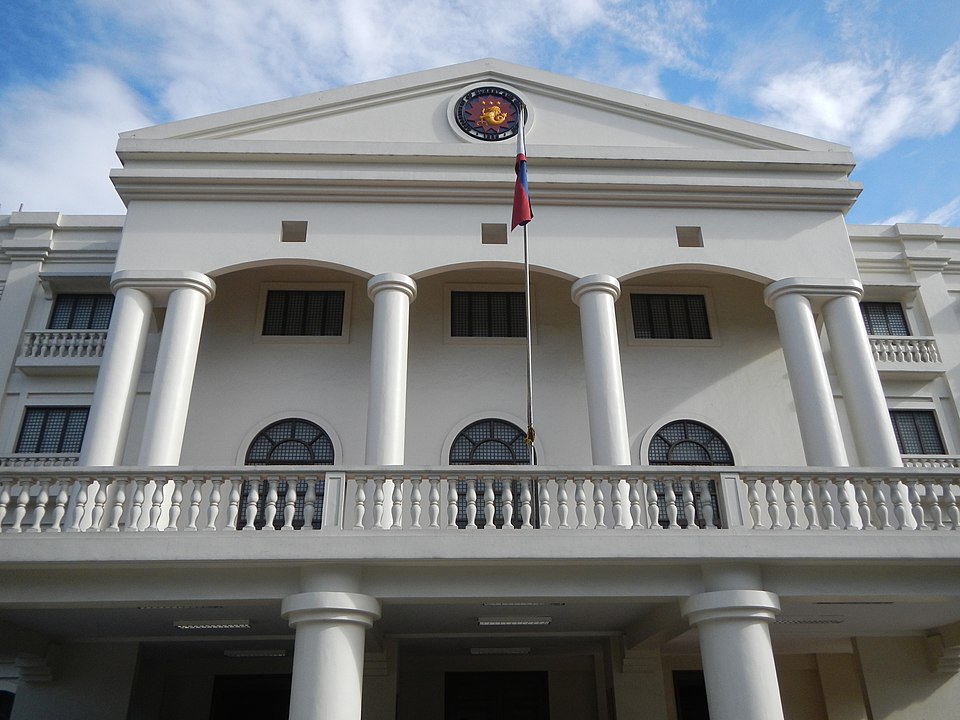News
DBM: Study on LGU devolution out in 2 months

After the completion of the study, DBM will propose the necessary policy recommendations for the Chief Executive “to issue and to serve as guidance of the local governments and the national government agencies in the implementation of the full devolution effort.” (File photo by Judgefloro – Own work, Public Domain)
MANILA – The study on the devolution of some roles of the executive branch to local governments is expected to be out in two months, a Department of Budget and Management (DBM) official said on Saturday.
“Last week, the President directed the NEDA (National Economic and Development Authority) to further study the implementation of this full devolution taking into consideration the overall capacities of the local government units (LGUs) and to take a look at the particular functions and services that should be retained by the national government,” DBM Director John Aries Macaspac said in a news forum in Quezon City.
“So, these are basically those that cannot really be implemented by the local government units taking into consideration their technical and financial capacity and then we will also identify those that could already be implemented by the local governments,” Macaspac added.
After the completion of the study, DBM will propose the necessary policy recommendations for the Chief Executive “to issue and to serve as guidance of the local governments and the national government agencies in the implementation of the full devolution effort.”
The necessary policy guidelines will also be issued or probably an amendment to Executive Order (EO) 138, Macaspac said, adding that the DBM together with its partner agencies, particularly the Department of the Interior and Local Government (DILG), will also issue the corresponding implementing guidelines for the purpose.
“And the local government units, as well as the national government agencies concerned will be duly informed, capacitated and, well, they will be informed of these policy directives for the full, efficient and effective implementation of this full devolution effort of the government,” he said.
Macaspac pointed out that the full devolution effort of the government is being implemented to cushion or mitigate the fiscal impact of the Supreme Court (SC) ruling on the Mandanas-Garcia case.
EO 138, s. 2021, was issued to support the efficient implementation of the SC ruling on the Mandanas-Garcia case and strengthen the autonomy and empowerment of LGUs.
It directs full devolution of certain functions of the Executive branch to the LGUs and also provides for the creation of a Committee on Devolution to monitor the implementation of the EO.
Basis of devolution
The SC ruled in 2018 that the just share of LGUs from the national taxes is not limited to “national internal revenue taxes” collected by the Bureau of Internal Revenue and other tax collecting agencies.
Under the Mandanas ruling, the national government is mandated to expand the share of LGUs in tax collection.
On the other hand, LGUs are required to handle the responsibility of operating social services like agriculture, connectivity and health within their jurisdictions.
The ruling is a result of two separate petitions filed by Batangas Governor Hermilando Mandanas and former Bataan governor Enrique Garcia Jr., requesting that the basis of computation of the Internal Revenue Allotment of LGUs be adjusted to include national taxes.
Macaspac said the full devolution is made consistent with the Local Government Code of 1991 and it was directed to be fully implemented through the EO 138 issued by former President Rodrigo Duterte in 2021.
“So in the implementation of the full devolution, we have initially prescribed three years starting last year which is the start of the implementation of the Mandanas-Garcia ruling until 2024. But due to the noted lack of technical and financial capacity of the local government units and taking into consideration the significant reduction in the year 2023 national tax allotment shares, the President instructed the oversight agencies namely the DBM, the DILG, the DOF (Department of Finance) and the NEDA to study this full devolution effort,” he said.
While the study is ongoing, Macaspac said the national government will continue to provide the needed support by the local governments particularly in the capacity-building programs and interventions, the continued provision of financial assistance to LGUs in the form of the local government support fund and those that are being provided by several national government agencies. (with Ferdinand Patinio/PNA)





















